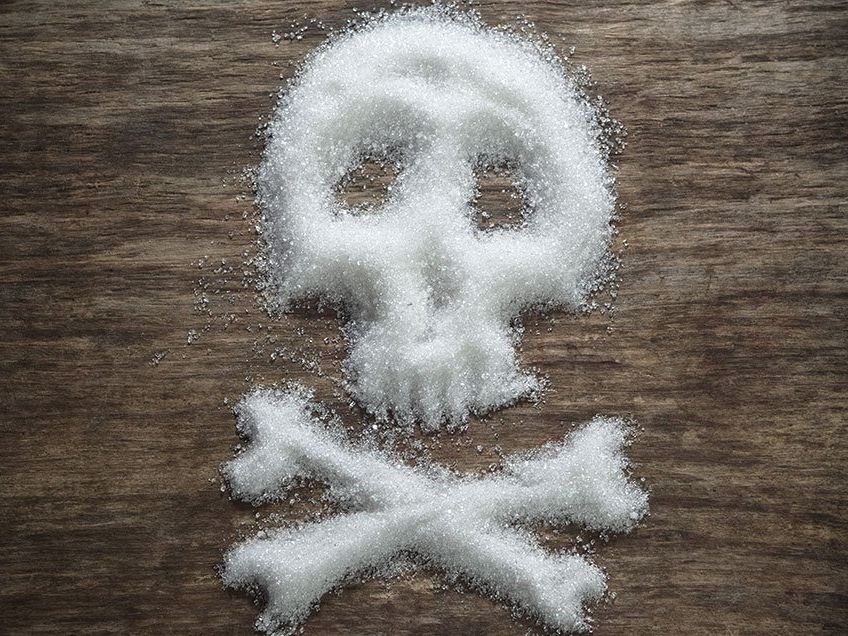Why Must The Indian Government Investigate Cadbury Bournvita Claims About Their Health Drink?
Basically, studies and the scientific evidence for everything written on the Bournvita product are not supported by good evidence.

Health and energy have never been more popular, desired, or wanted than they are now. After all, even a significant burger company is scrambling for ‘nutritional’ certification for its menu. With market competition heating up, brand strategists and marketers are ready to update their company’s positioning and image. Frequently, the ‘health’ tag serves as their ‘open sesame’ to the consumer universe. There is undoubtedly uncertainty in the situation, and while businesses may be inclined to exploit it, we as consumers will be better off if we are conscious of what we are purchasing. So, let’s go to the health drinks department.
If you are not under the rock, then you might have known about the buzz revolving around Bournvita and its impacts of health drinks on people’s lives.
But are these so-called health drinks really healthy? Do the children genuinely need them to grow and develop bodies and minds? Do these health drinks not provide any kind of adverse health consequences? And many more. Let’s dive down the page to learn about many such kinds of questions, and is there any need for government intervention to investigate Bounvita’s claims about their health drink or not?

Are these health drinks beneficial to one’s health or merely a tasty treat?
In India, these health drinks like Bournvita are known as malted beverages. India is said to be the world’s largest market for malt-based beverages. While marketers have positioned such beverages as health drinks, they are generally eaten as flavour enhancers to boost milk consumption among growing children.
According to Bournvita, the product has an “inner strength formula” that can aid in developing the brain, bones, and muscles. Other XYZ beverages claim to aid in “2x faster growth” in children. These claims may border on the insane at times. However, experts contend that these beverages do not merit their ‘healthy’ label and, more significantly, may not be the best supplements for kids. So there is a lack of proper evidence that these so-called health drinks may or may not be a necessity for every kid, and hence the claim that they will enhance any kind of a child’s development seems questionable!
The call for macronutrients and sugar.
The contents of malt-based beverages, like other packaged food goods, are a dead giveaway. While malt is definitely the primary component (typically a barley or grain derivative), sugar is usually nearly the second ingredient. Although India does not have sugar intake guidelines, the most recent WHO mandate advises a limit of 100 calories (5%) in a 2,000-calorie diet. Given the prevalence of sugary junk food in modern diets, these malt-based drinks may contribute to sugar consumption beyond the recommended limit.

Some expert opinions.
According to Priya Kathpal, dietitian and founder of Nutrify, all of the nourishment children obtain from these beverages comes from milk. These items solely serve to improve milk’s flavour, which many kids dislike. Constantly giving such things to kids is an entirely ill-informed parental decision. The main reason Kathpal argues this is because sugar is addicting. She adds that this also leads to kids never drinking milk on its own and connecting it with a sweet, chocolatey flavour.
Because they are so active, these beverages may be beneficial to kids, according to Ishi Khosla, a clinical nutritionist in Delhi and founder of The Celiac Society of India. However, if these beverages are drunk regularly, particularly by adults, the extra sugar, which comes with minor quantities of additional value, must be considered and accounted for.
The micronutrients question.
Micronutrient content is another of the ‘healthy characteristics’ that these malt-based beverages like Bournvita highlight. Micronutrients are necessary for small amounts because they allow the human body to execute and improve physiological activities. Calcium, for example, is required for the bones; vitamins B and C are required for energy production; vitamin D for immunity; magnesium is for regulating blood pressure; potassium is for maintaining fluid in cells; zinc is for wound healing; and iodine is for thyroid regulation, among others. A shortage of certain micronutrients in our diets causes nutritional insufficiency, malnutrition, and even illness.
Consider vitamin D. All humans, including children and adults, should ingest 15 micrograms (or 600 units) of Vitamin D each day. For example, Bournvita Lil Champs has 10 micrograms of Vitamin D per 100g. This falls well short of the daily needs of kids, who would otherwise need to take roughly 10 tablespoons of it every day to satisfy standards.
Complex chemistry is also at work here. Sugar interferes with the absorption of both vitamin D and calcium. Furthermore, it is well-recognised that cow milk hinders iron absorption and that its ingestion is a significant cause of anaemia in babies. Even though Bournvita is enriched with Vitamin D and iron, and milk is fortified with Calcium, the sugar and milk will decrease the absorption of other minerals, negating their effect.
Wait, but these companies claim that they provide nutritional health benefits; where are they now? False alarm bell!!
However, micronutrient insufficiency or “hidden hunger” will lead the body to absorb micronutrients fast. Thus, these amounts are advantageous to children who are deficient in these nutrients but not to children who are otherwise healthy.
Where is the unbiased research about Bournvita?
The amount of independent research examining the human absorption of micronutrients from malt-based beverages is zero. No publicly available scientific publications back up these items’ claims.
The issue of food labelling.
According to a 2013 research that examined the nutritional information on 20 prominent malt-based drinks in India, various brands reveal varied levels of nutrient information depending on who they’re aimed at. However, they all reveal macronutrients (carbohydrates, protein, lipids) and certain fundamental nutrients (vitamins, iodine, calcium, iron), although many only reveal useful nutritional information for marketing to the intended customer.

According to the study, the differences in information content between health drinks show that there is no standard requirement for releasing nutritional information, and hence such information is supplied by the organisation voluntarily. So, God knows what they have written under nutrition is a form of food.
And the list doesn’t end here.
A scientist and liver specialist recently said that the company’s claims about the “health drink” Bournvita, fostering muscle and bone development, immunity boost, and brain development, are deceiving because no controlled studies back them up. Dr Abby Phillips’ remarks came only a few days after Instagram star Revant Himatsingka removed a video criticising Cadbury for marketing Bournvita as a health drink despite its high sugar content.
Dr Philips stated in a Twitter thread that Cadbury made a statement to counter Himatsingka’s claims, stating that the product Bournvita was created on a scientific foundation, “which means there have to be published studies backing their claims.” However, the only published study that the liver specialist could discover corroborated Himatsingka’s assertions in the now-deleted video.

One of the four study papers discovered by Dr Philips revealed that the caffeine concentration in Bournvita was more significant than in other similar cocoa-based products. Another study found that the colour of Bournvita products varies owing to pH variations caused by their “sugary” content. A third dubbed the UNICEF-Cadbury collaboration “sugar washing.”
Basically, studies and the scientific evidence for everything written on the Bournvita product are not supported by good evidence. Thus Cadbury’s claims on muscle and bone growth, immunity enhancement, and brain development are misleading, adding that there is lack of controlled studies to show the same,” Dr Philips tweeted.
Conclusion.
Now there are two conclusions formed by the above instances. First, these real health professionals are lying, or the health drink company like Bournvita must provide more truthful content about their beverages. Health professionals are the backbone; ignoring their signals about any specific topic might lead to negative consequences. Hence, there is a need for the regulatory bodies and the government to watch firms so that they do not openly lie about their packages.




